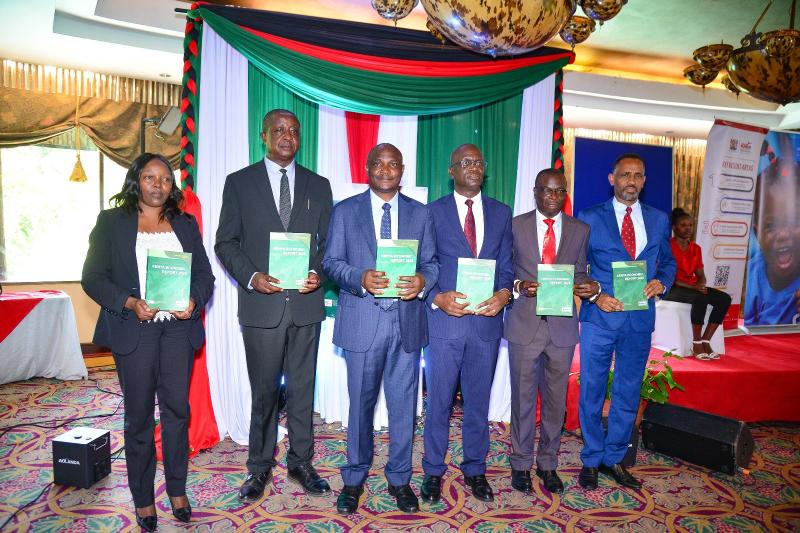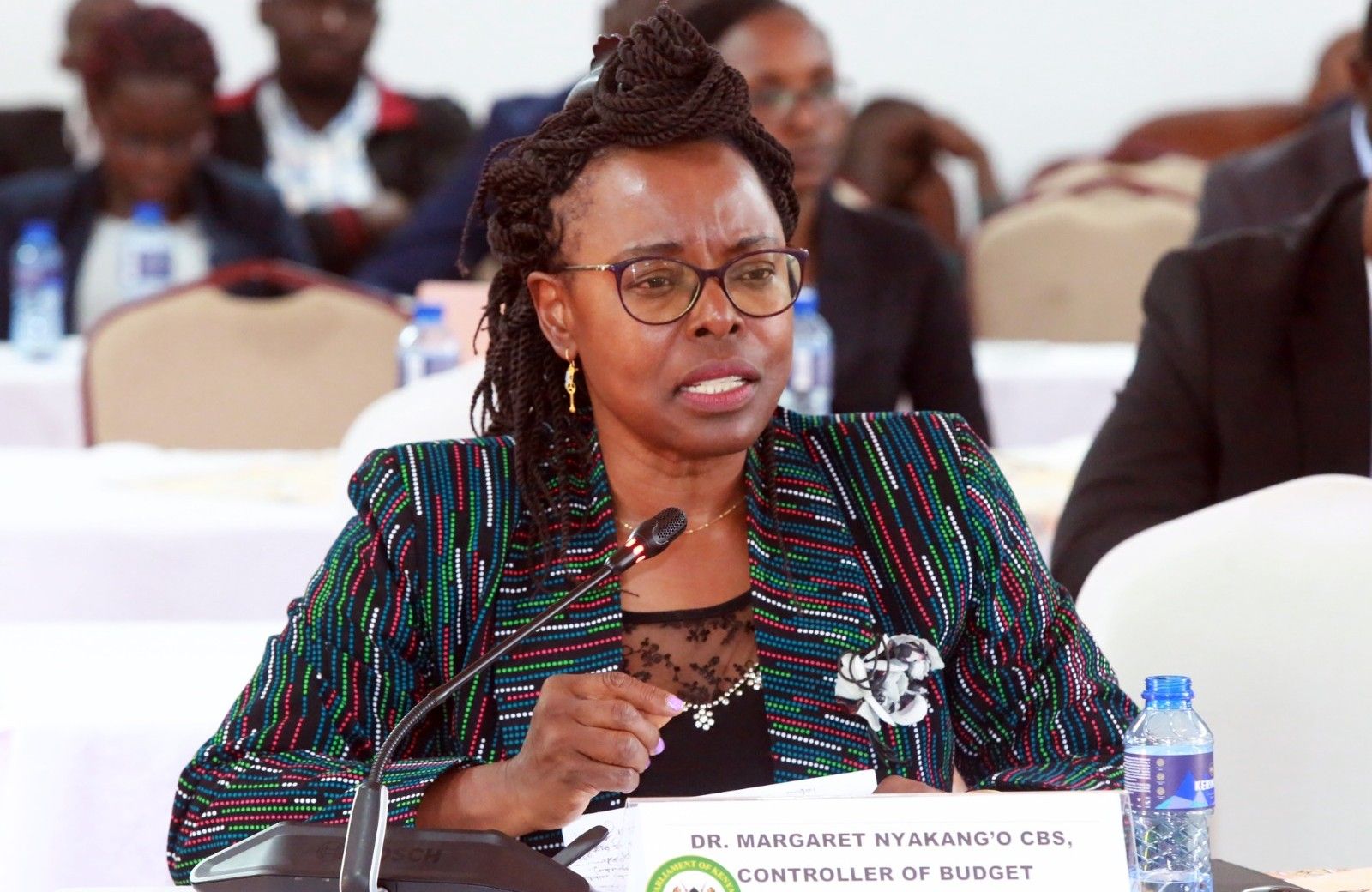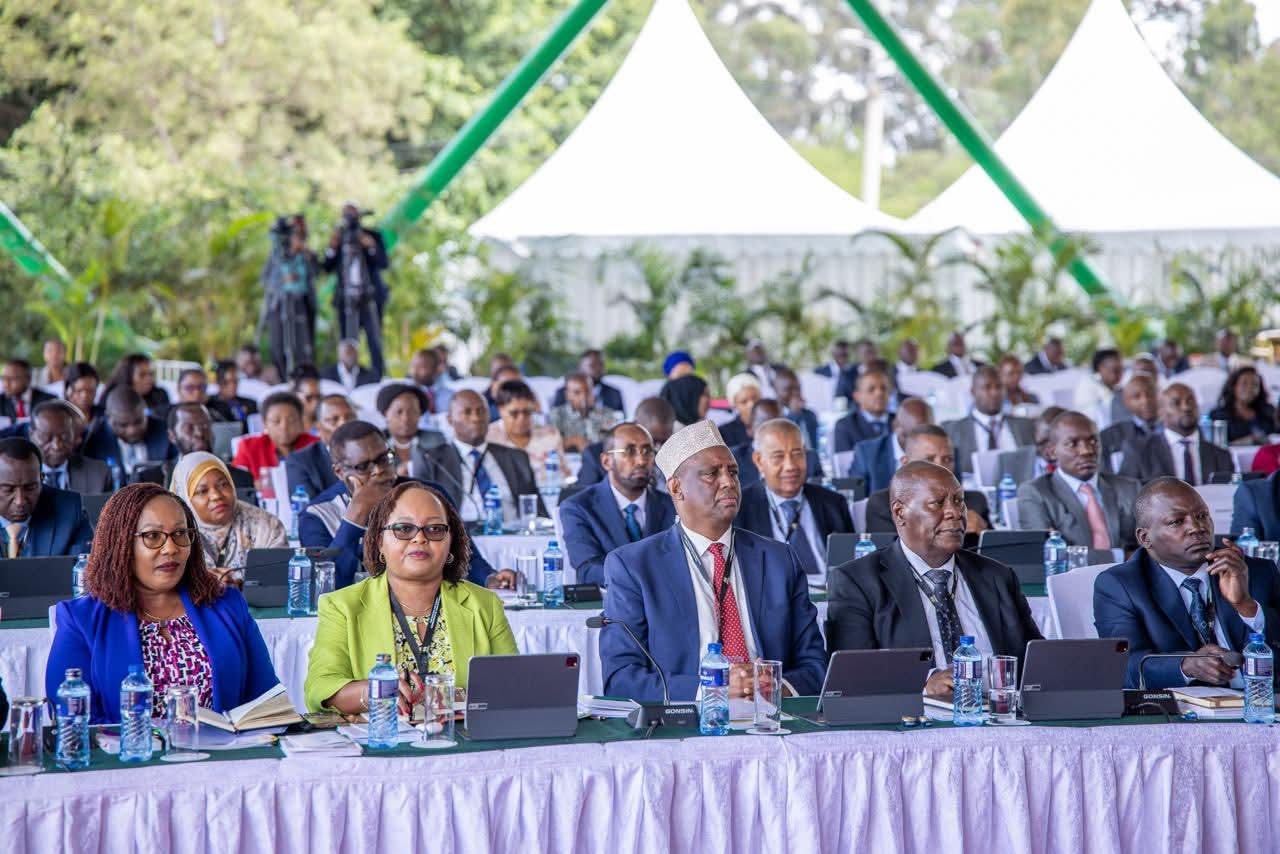Nairobi County proposes new rules to strengthen school feeding programme oversight

The reforms come amid rising concerns over Dishi na County, Governor Johnson Sakaja’s flagship programme, which has faced scrutiny after an audit revealed Sh145.7 million from the French Embassy could not be traced.
Nairobi County is introducing a new framework to strengthen the management and accountability of its school feeding initiative, aiming to safeguard public and donor funds while improving service delivery.
The proposed Public Finance Management (Nairobi City County School Feeding Programme Fund) Regulations, 2025, presented to the County Assembly by Majority Leader Peter Imwatok, plan to set up a dedicated fund and a nine-member board to oversee financial operations, procurement, and parental contributions.
More To Read
- Nairobi County approves two monthly menstrual health days for women staff
- Ombudsman orders Nairobi County to prioritise pension debts in county budget
- IPOA launches probe as family demands truth over boda boda rider’s death in Nairobi police cell
- Uhuru Park set for food, music and culture as three-day Nairobi Festival kicks off
- Kenya’s children holiday hunger: How school holidays leave slum families struggling to survive
- Nairobi orders staff to submit academic, professional records by January 15
Finance Executive Charles Kerich, who designed the regulations, said the plan will create a standalone account for the programme, establish clear guidelines for collecting and spending money, allow the county to keep receipts and income, and introduce structured processes for budgeting, reporting, and auditing.
The board will be led by a governor’s appointee and will include a county executive, two chief officers for finance and nutrition, four executive-nominated members, and representatives from the National Treasury and Ministry of Education.
Its responsibilities will include approving budgets, checking financial statements before they go to the Auditor-General, supervising contractors, deciding parental contribution rates, and ensuring transparency. An accounting officer will manage the Dishi na County funds on a day-to-day basis.
The programme will serve children in public primary schools and Early Childhood Education centres, with the board reviewing requests for other eligible learners who may need support.
The regulations state, “The beneficiaries of the Fund shall be learners enrolled in public Early Childhood Education centres and primary schools in Nairobi County and learners eligible for or receiving social support as may be determined by the board.”
Parents contribute Sh5 per meal while the county pays Sh20, but the board will monitor and adjust cost-sharing rates as needed.
“The contractor(s) shall report to the Board quarterly on the actual costs incurred for meal preparation and distribution, providing detailed records of expenditure related to food procurement kits, providing food procurement, kitchen operations, staff and other relevant expenses,” the document adds.
The reforms come amid rising concerns over Dishi na County, Governor Johnson Sakaja’s flagship programme, which has faced scrutiny after an audit revealed Sh145.7 million from the French Embassy could not be traced.
Auditor-General Nancy Gathungu noted the absence of clear guidelines, agreements, or documentation for handling the donation, which was routed directly to Food for Education, the private implementer.
The audit also flagged discrepancies in payments to the contractor. Although parents pay Sh5 per meal, the county paid the full Sh25 per plate, resulting in the organisation receiving Sh30 per meal, above the contracted amount.
Food for Education invoiced Sh345.9 million but received Sh262.2 million, with officials unable to explain the inconsistencies.
Similar issues were raised by the County Assembly Health Committee, chaired by Mountain View Ward Representative Maurice Ochieng.
Health Executive Susan Silantoi and CEO Wawira Njiru were asked to clarify donation handling and the lack of a guiding policy. MCAs noted that without regulations, auditing the Sh1.7 billion allocated in 2023/24 and the extra Sh400 million for the current fiscal year is nearly impossible.
Last month, Sakaja reaffirmed his commitment to extending the county’s flagship school feeding initiative, Dishi na County, to learners in informal schools, while noting that financial and infrastructural constraints remain major hurdles to faster expansion.
Speaking to the Senate Education Committee at Bunge Tower, Sakaja explained that the county government is crafting a strategy to gradually integrate informal schools into the programme.
The plan will initially leverage nearby public schools that already operate central kitchens, enabling children from informal learning institutions to receive meals during lunch hours.
“In the 230 public schools we have in Nairobi, we operate 17 central kitchens that currently feed 316,000 learners. To include all informal schools, we would need 69 more kitchens. It’s a budget issue,” Sakaja told the committee.
He added, “As we work on that, we’ve identified nearby public schools where children from informal schools can go during lunch to have a meal.”
The governor further noted that fully incorporating informal schools into Dishi na County would demand substantial financial resources, both to expand infrastructure and cover ongoing operational costs.
Top Stories Today










































